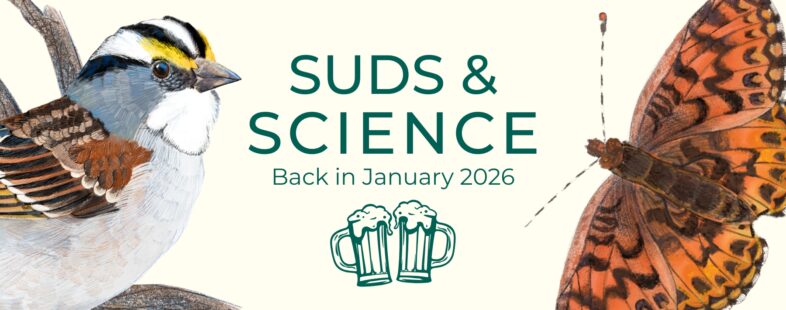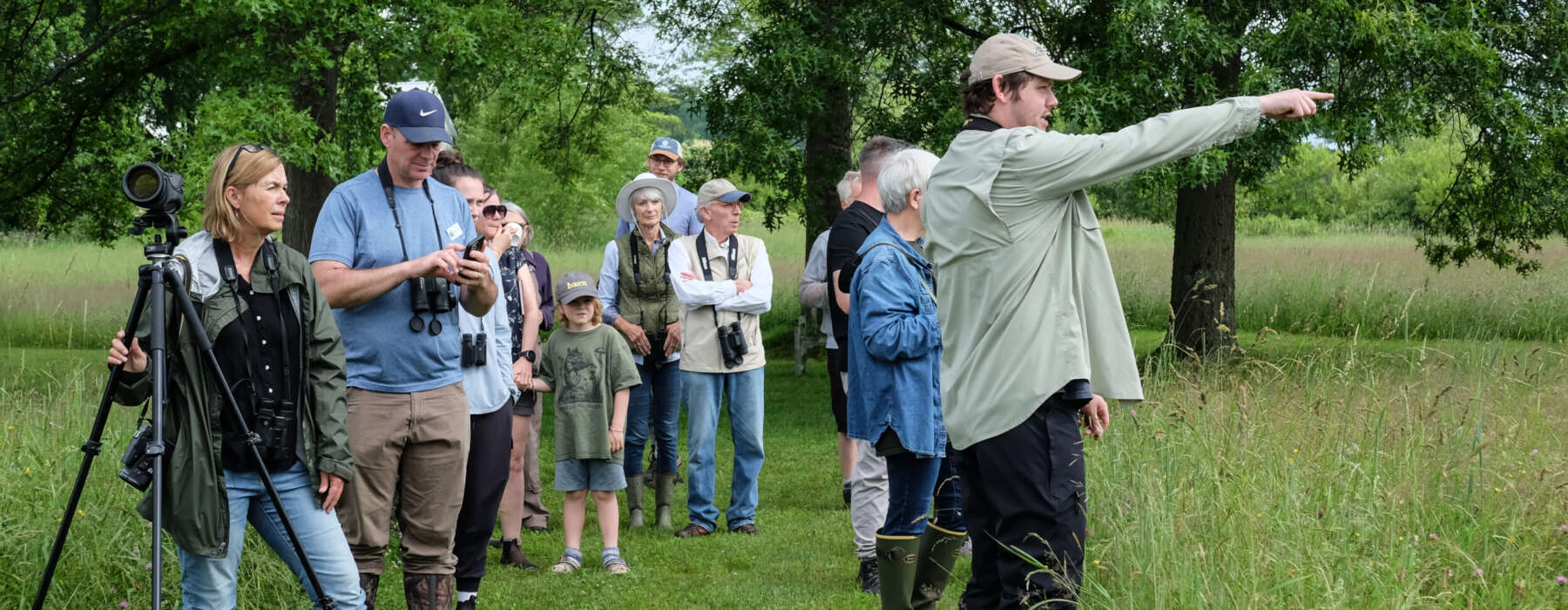Learn from VCE Staff in Person and Online
Pull up a chair and learn about the latest conservation news, plus how you can be involved. If you have an event, group, or organization that would like to host a VCE staff member for a particular topic, please fill out our Speaker Request Form.
If you’d like to support VCE’s biodiversity conservation work, please consider a contribution. Donate easily and securely online anytime!
Suds & Science will be back in January 2026! Stay tuned for details.

Interested in having a VCE conservation biologist speak at your event, or lead a field outing?
Please fill out our Speaker Request Form to start the process.
Example Presentations:
Presenter: Spencer Hardy
Title: Exploring Vermont’s Wild Bees: Natural History, Identification, and Conservation.
Presentation Summary: When most people think of bees, they imagine the famous Honey Bee (Apis melifera), yet that is just one of more than 300 species of bees found in the state. Since 2019, the Vermont Wild Bee Survey has been criss-crossing the state to document these important pollinators. We have found dozens of species not previously known from the state and are amassing a rich database that will be invaluable to conservation planners for years to come. Hear more about this project–including our most exciting findings, ideas on conserving vulnerable bees, and ways you can join our future monitoring efforts.
Presenter: Kevin Tolan
Title: Eastern Meadowlarks in Vermont: Ecology and Conservation of an Imperiled Grassland Bird
Presentation Summary: Eastern Meadowlarks in the Northeast are rapidly declining; based on the latest USGS Breeding Bird Survey results, they’re undergoing an estimated 8.7% annual decline in Vermont. With their recent designation of Threatened in New Hampshire, and imminent listing in Vermont, now is a golden opportunity for targeted survey efforts. The Vermont Center for Ecostudies is partnering up with New Hampshire Audubon to launch a bi-state “blitz” this spring to encourage birders and community scientists to target areas of grassland habitat with the goal of seeking out meadowlarks. Join VCE and our collaborators to learn about these imperiled songbirds and what you can do to help keep them on the Vermont landscape.

